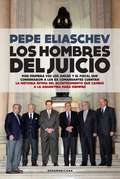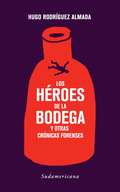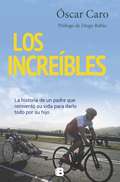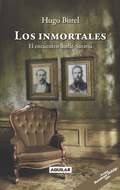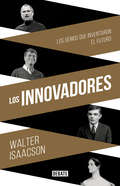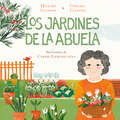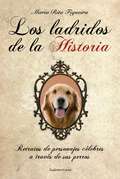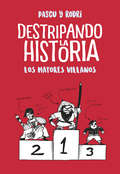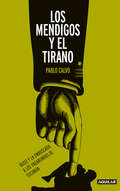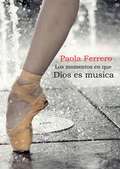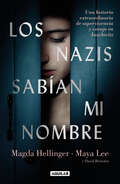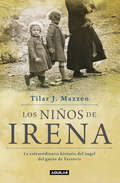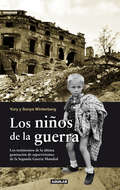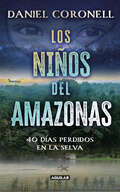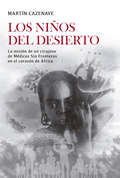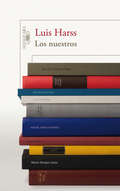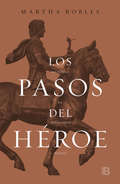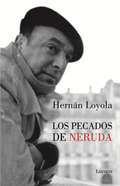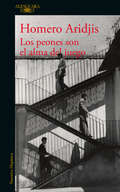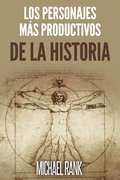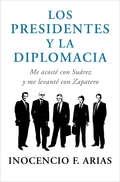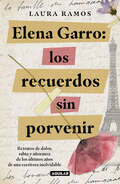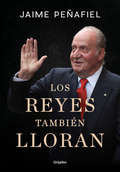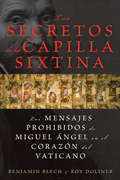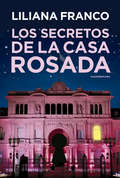- Table View
- List View
Los hombres del juicio
by Pepe EliaschevLa historia íntima del juicio a las Juntas Militares contada por susprotagonistas. Una mañana de otoño de 2010 el juez Ricardo Gil Lavedra citó a PepeEliaschev en su estudio en la avenida Santa Fe. Ex integrante de laCámara Federal que juzgó a las juntas militares en 1985, queríaconfiarle al periodista un proyecto. Pocos meses después, el 9 dediciembre, se cumplirían veinticinco años del juicio que condenó a losautores del mayor plan criminal de la historia argentina. El fiscalJulio Strassera y los seis integrantes de la Cámara (Gil Lavedra, LeónCarlos Arslanian, Guillermo Ledesma, Jorge Torlasco, Jorge Valerga Aráozy Andrés D´ Alessio, que falleció en 2008) se habían seguido viendoperiódicamente durante un cuarto de siglo. «Siempre supimos que laverdadera historia del juicio aún no había sido contada y siemprepensamos que algún día la escribiríamos. Pero el tiempo ha pasado y yaes evidente que no es algo que haremos nosotros», le confesó Gil Lavedraa Eliaschev. Por unanimidad, los jueces lo habían elegido paraproponerle esa difícil tarea. El resultado es el libro que el lectortiene en sus manos, una crónica conmovedora e iluminada sobre la mayorhazaña civil de nuestro país, una proeza que no ha sido aúnadecuadamente reconocida por la sociedad argentina, aunque seareferencia obligada en medios jurídicos extranjeros. «Nadie en el mundohizo tanto, tan rápido y de manera tan contundente», sostiene el autorsobre la sentencia firmada en 1985. Este es, por primera vez, eltestimonio crudo de aquellos señores jueces que no sospechaban lo que lahistoria les deparaba cuando fueron llamados a asumir tan enormedesafío, al que respondieron valiente y exitosamente.
Los héroes de la bodega y otras crónicas forenses
by Hugo Rodríguez AlmadaA lo largo de once intensas historias de muertes violentas el médico Hugo Rodríguez cuenta su experiencia como forense.En estas muertes el escritor-médico médico-escritor reflexiona sobre la vida, la muerte, la pobreza, la violencia y el ser humano. Un texto potente para leerlo en distintos niveles. El escritor y grado 5 en Medicina Legal Hugo Rodríguez Almada convive con la muerte y la tragedia, es su trabajo. A lo largo de veinticinco años de ejercicio de la profesión, este escritor-médico ha lidiado con casos donde el papel principal no lo tiene la muerte, lo tiene el contexto. La pobreza, la violencia de género, el egoísmo y la sociedad son algunos de los personajes principales que sobrevuelan estas historias particulares y comunes. Cinco años después de haber publicado Crónicas forenses. Historias de personas, el autor se propone «reivindicar la Medicina Legal y las Ciencias Forenses, igualmente maltratadas por la práctica tolerada del intrusismo y de los vendedores de humo. Rescatarlas de la mentira, tantas veces festejada por la credulidad del público y siempre funcional al sistema, para colocarlas en el lugar cierto de lo inexacto, lo incompleto y lo falible». Y también «contar historias que, por alguna razón, se quedaron en mí. Y que, a la vez, me parece de utilidad social darlas a conocer, desvistiéndolas, hasta donde sea posible, de lo críptico y las jergas técnicas». Con gran sentido narrativo y documentado, conoceremos qué hay detrás de once casos que muestran al ser humano, la muerte y la vida.
Los increíbles
by Óscar Caro (FIDEC) Diego RubioLa historia de dos superhéroes de la vida real La vida de Óscar Caro cambió por completo cuando Luis David, su hijo menor, sufrió dos eventos cardiorrespiratorios que le ocasionaron una parálisis cerebral a los seis meses de nacido. Al conocer la historia del Team Hoyt -un equipo en el que un padre corre maratones empujando la silla de ruedas de su hijo-, Luis David le propuso a su papá que persiguieran ese sueño y, así, Óscar decidió convertirse en atleta profesional a los cuarenta años para correr, nadar y pedalear cientos de kilómetros con su hijo al hombro. El Team Caro Wagner, como se hace llamar este equipo de superhéroes de la vida real, ha corrido maratones y triatlones en Colombia y en el exterior, y aunque el esfuerzo de terminar una competencia de estas es monumental, no es nada comparado con el que debe hacer una familia con un miembro en condición de discapacidad. Los Increíbles es el inspirador testimonio de un padre que hace hasta lo imposible por su hijo, y es también una historia que nos demuestra que es posible salir adelante, a pesar de las complicaciones que la vida nos presenta. Al comprar este libro, estás ayudando a los niños de la Fundación FIDEC, Luis David Caro Wagner.
Los inmortales: El encuentro Batlle-Saravia
by Hugo BurelEn el espacio abierto y despejado de la adolescencia o en la misteriosa oscuridad de la delirante transición que precede a la muerte, se sucede un diálogo que llega a erizar la piel de quienes admiran y respetan a dos personalidades de la política de Uruguay. Con prosa impregnada de poesía, Hugo Burel consigue, en la ficción, lo que nunca ocurrió en la realidad: el encuentro de dos grandes de nuestra historia, como sin duda lo fueron José Batlle y Ordóñez y Aparicio Saravia. En el espacio abierto y despejado de la adolescencia o en la misteriosa oscuridad de la delirante transición que precede a la muerte, se sucede un diálogo que llega a erizar la piel de quienes admiran y respetan a esas dos personalidades. Un libro fascinante que incita a la lectura sin descanso, y nos induce a replantearnos una multiplicidad de cuestiones que la historia aún no ha resuelto. Transformados en personajes de ficción, el gaucho de El Cordobés y el estadista se enfrentan, agonizan y discuten en el transcurso de esta narración de honda espesura dramática. Saravia, desde su legendario perfil de idealista revolucionario y Batlle, en la rigurosa defensa, honesta y racional, de sus convicciones más profundas, desarrollan un contrapunto que indaga sobre esa obstinada renuencia a encontrarse y verse las caras que signó su actuación pública.
Los innovadores: Los genios que inventaron el futuro
by Walter IsaacsonEn una era que busca fomentar la innovación, la creatividad y el trabajo en equipo, Los innovadores es la obra que mejor muestra cómo se producen. Tras su extraordinaria biografía de Steve Jobs, el nuevo libro de Walter Isaacson cuenta la fascinante historia de las personas que inventaron el ordenador e internet; Los innovadores está destinado a convertirse en la historia definitiva de la revolución digital y en una guía indispensable para entender cómo sucede realmente la innovación. ¿Qué talentos y habilidades permitieron a algunos inventores y empresarios convertir sus ideas visionarias en realidades disruptivas? ¿De dónde vinieron esos saltos creativos? ¿Por qué algunos triunfaron y otros fracasaron? En esta magistral saga, Isaacson arranca con Ada Lovelace, la hija de lord Byron, una pionera de la programación informática en la década de 1840. Además, presenta a las extraordinarias personas quecrearon la revolución digital que nos rodea, gente como Vannevar Bush, Alan Turing, John von Neumann, J.C.R. Licklider, Doug Engelbart, Robert Noyce, Bill Gates, Steve Wozniak, Steve Jobs, Tim Berners-Lee o Larry Page. Esta es la historia de cómo funcionan sus cerebros y por qué han sido tan inventivos, pero también de cómo su capacidad para colaborar y dominar el arte del trabajo en equipo les hizo aún más creativos.
Los jardines de la abuela
by Chelsea Clinton Hillary Clinton¿Qué compartes con las personas a las que quieres?Abuela Dorothy compartió su amor por los jardines con su hija Hillary y con su nieta Chelsea. Les enseñó que los jardines son lugares mágicos de aprendizaje, asombrosos espacios para el descubrimiento, puntos de encuentro con la familia y bellas áreas donde compartir historias y celebrar acontecimientos especiales. Pero, sobre todo, les enseñó que en su jardín su amor crecía y florecía.En esta inspiradora y reconfortante historia de madre-hija, Hillary Rodham Clinton y Chelsea Clinton se unen para mostrar a los lectores cómo compartir las cosas que amamos con las personas que queremos puede crear fuertes y eternos vínculos entre generaciones.
Los ladridos de la historia: Retratos de personajes célebres a través de sus perros
by María Rita FigueiraMentes geniales, hombres heroicos, mujeres fascinantes, personajes conun componente en común: el amor incondicional hacia los perros. Por una razón u otra, ciertas personalidades fueron marcadasa fuego por sus mascotas generando vínculos que superaron en intensidady apego a cualquier relación que mantuvieron con seres humanos. SigmundFreud, Frida Kahlo, Alejandro Magno, Juan Domingo Perón, Pablo Picasso,Hitler, Neruda, Trotsky, Virginia Woolf, Rodolfo Valentino, SimónBolívar, entre tantos otros. A través de una rigurosa investigación, laautora crea maravillosos retratos y biografías de sus protagonistas. Yen cada capítulo realiza una puesta en escena donde adquiere importanciael ser humano pero también su perro. Condimenta con anécdotas, realidady ficción, la vida de figuras polémicas.El libro nos abre las puertas al mundo canino y nos invita a un viajedonde las distintas razas, costumbres y épocas se describen consensibilidad y colorido. Hocicos fríos, cálidos abrazos, manos y patasse funden en caricias.María Rita Figueira, fiel a su amor por esta especie singular y querida,logra un verdadero tributo a la historia y también al parentesco quenace entre algunas personas y sus perros.
Los mayores villanos (Destripando la historia #Volumen)
by Rodrigo Septien Alvaro PascualDescubre el lado más villano y canalla de nuestra historia. <P><P>¿Crees que lo sabes todo sobre los mayores villanos que han marcado la historia a lo largo de los años? ¿Sabes de dónde provienen los grandes mitos de la maldad humana? ¿Crees que la corrupción es solo cosa del presente? <P><P>Nunca te han contado la historia de esta forma. Este libro te desvela, te descubre y te destripa el origen de las personas más desleales, infames, indignas y fascinantes de nuestra historia. ¡Con todo el humor y las ilustraciones desternillantes de su famoso canal de YouTube!
Los mendigos y el tirano
by Pablo CalvoBussi y la emboscada a los vagabundos de Tucumán. «Hace mucho oí unos pocos detalles del episodio pero no encontré a nadie que supiera contarlo, hasta que a fines de 2003 el historiador Eduardo Rosenzvaig me hizo llegar precisiones tan delirantes que estarían fuera de lugar en las novelas. Sucedió poco antes o poco después de una visita protocolar a Tucumán del presidente de facto Jorge Rafael Videla. El gobernador militar de la provincia era Antonio Domingo Bussi, un maniático de la limpieza y un feroz exterminador de disidentes [...]. Fuese o no para impresionar a Videla, el pequeño tirano Bussi impartió aquel invierno de 1977 la orden de recoger a todos los mendigos de Tucumán en un camión militar y arrojarlos en los descampados de Catamarca.» Tomás Eloy Martínez Este libro es la crónica detallada de ese "episodio" y su largo reguero de derivaciones, que incluyen el juicio que el ex gobernador Bussi emprendió contra el escritor y periodista Tomás Eloy Martínez a propósito de las palabras citadas. En su apasionante relato, fruto de una pormenorizada investigación, Pablo Calvo devuelve la presencia, el rostro y la voz a los protagonistas involuntarios del hecho (Pachequito, Vera, el Loco Perón, la Alemana, Mannix, Satélite, entre tantos otros mendigos tucumanos "deportados"), da cuenta del coraje de quienes supieron denunciarlo y aporta una reflexión, siempre presente, sobre el derecho y el compromiso de llamar las cosas por su nombre.
Los momentos en que Dios es música
by Gisela Fernández Paola FerreroLos momentos en que Dios es música está narrado en primera persona por una joven de diecisiete años que vive en la provincia de Turín en la década de los ochenta. Su vida viaja por dos vías. Por una parte, está la rutina de una familia rota, con una madre abandonada y una hermana que parece una extraña; trabajan mucho para saldar deudas y pagar a los usureros, perdidas en la niebla de la llanura rural y esclavas de una tienda de comestibles que les proporciona lo mínimo indispensable. Por otra parte, están su sueño de ser bailarina y de llevar una vida diferente y su trayecto diario en tren hasta Turín, donde estudia y da sus primeros pasos hacia una carrera difícil y efímera. En su historia están presentes los amigos con quienes comparte su viaje cotidiano, las personas con las que sueña con triunfar y otras con las que teje relaciones solo en parte sentimentales. Lo que cuenta son la música y la transformación que experimenta sobre el escenario. La audición para su primer espectáculo importante, la fatiga de los ensayos y la magia del debut son instantes de su vida que ella fotografía con esmero. Los capítulos no tienen título, solo números que buscan subrayar «la instantánea» de cada momento pasado en esta aventura. Muchas polaroid que retratan un mundo en el que la protagonista tiene que vivir su adolescencia y que componen su sueño en un momento en el que la vida le permite por lo menos intentar que este se haga realidad. Una banda sonora acompaña su aventura, veinte canciones que transportan a aquellos años.
Los nazis sabían mi nombre
by David Brewster Maya Lee Magda HelllingerUna historia extraordinaria de supervivencia y coraje en Auschwitz Marzo de 1942, una joven maestra de jardín de niños llamada Magda Hellinger, procedente de Eslovaquia, fue deportada al campo de concentración de Auschwitz junto con casi mil mujeres más, en el que sería uno de los primeros arribos de mujeres judías al terrible campo nazi. En muy poco tiempo la brutalidad del nazismo se volvió el principio de realidad en el que Magda se movía. Por si fuera poco, las SS descubrieron que al poner a ciertos prisioneros a cargo de los bloques donde cientos de personas se alojaban les permitía trasladar sus responsabilidades hacia estos individuos que, si no llevaban a cabo sus labores administrativas de la manera adecuada, simplemente eran eliminados. Magda fue una de esas prisioneras seleccionadas para hacerse cargo del infame Bloque 10, en el que personal médico alemán experimentaba con los reclusos. En estas memorias, Magda nos relata cómo caminó al filo de la navaja durante varios años: salvar la mayor cantidad de vidas mientras evitaba las sospechas de las SS y corría el riesgo de ser ejecutada. A través de su fuerza interior y su instinto de supervivencia, pudo superar el horror y la crueldad de Auschwitz y construir relaciones de amistad con las mujeres bajo su vigilancia. La historia de Magda es un testimonio de cómo el espíritu humano puede salir adelante aun en las condiciones más deshumanizantes.
Los niños de Irena: La extraordinaria historia del ángel del gueto de Varsovia
by Tilar J. MazzeoEl testimonio único de la heroína del Holocausto: Irena Sendler. Irena Sendler, "el ángel del gueto de Varsovia", fue una enfermera y trabajadora social polaca que, en la Segunda Guerra Mundial, salvó a más de dos mil quinientos niños judíos condenados a ser víctimas del Holocausto. Llegó a ser candidata al Premio Nobel de la Paz, fue reconocida como Justa entre las naciones y se le otorgó la más alta distinción civil de Polonia: la Orden del Águila Blanca. Esta novela cuenta cómo llegó a convertirse en esa heroína, la historia de la joven y hermosa mujer que tuvo que hacer frente a grandes riesgos, a pesar de los cuales no dudó en poner en peligro su vida para ayudar a salvar las vidas de miles de pequeños. Muchos de aquellos niños están vivos y cuentan su parte de la historia en primera persona. El relato de Irena es una historia de valentía, pero también de un amor imposible y, por supuesto, de una época histórica tan terrible como real: la Segunda Guerra Mundial. Reseñas: "Los niños de Irena teje en una fascinante historia el relato de una ciudad devastada, la depravación nazi y el extraordinario valor físico y moral de aquellos que decidieron responder a la inhumanidad con compasión." Chaya Deitsch, autora de Here and There: Leaving Hasidism, Keeping My Family "Un relato fundamental, aunque aterrador, de la historia del Holocausto que hasta ahora era poco conocido: el de cómo miles de niños fueron rescatados del gueto de Varsovia por una mujer polaca con mucho valor y una extraordinaria calidad moral." Joseph Kanon, autor de Leaving Berlin "Mazzeo relata un rayo de esperanza en tiempos de desesperación en esta biografía conmovedora de una mujer que se negó a darse por vencida." Kirkus Reviews "Si bien esta no es la primera biografía de Irena Sendler, su concisión y legibilidad presentarán a muchos lectores a una mujer realmente valiente y notable, quien inició y encabezó "un gran esfuerzo colectivo de decencia"." Publishers Weekly
Los niños de la guerra
by Yury Winterberg Sonya WinterbergLos testimonios de la última generación de supervivientes de la Segunda Guerra mundial. Las vivencias traumáticas que no se superan se transmiten de padres a hijos. El sufrimiento provocado por la Segunda Guerra Mundial sigue removiendo antiguas heridas y el miedo experimentado se transfiere como una vivencia grabada a fuego en la memoria de todos aquellos implicados de algún modo en ella, generación tras generación. Los niños ven el mundo con distintos ojos que los adultos; también la guerra. No aciertan a entender la verdadera naturaleza de las desgracias que trae consigo un conflicto bélico, las interpretan a su manera y desde una perspectiva que responde solo a la verdad y que por eso resulta aterradora. En este libro no solo hablan los niños de la guerra alemanes, sino también los de Polonia, los de Francia, los de Inglaterra y los de la antigua Unión Soviética. La visión de cada uno de estos pequeños y la fuerza de sus testimonios construyen un nuevo escenario, una nueva perspectiva sobre el panorama europeo de aquellos años, sobre lo que significó ser niño en la guerra. Los padres de Yury y Sonia Winterberg conservan intactos sus recuerdos de infancia, la ignominia de algunas circunstancias, el desprecio de los nazis, el miedo... todavía hoy. En Los niños de la guerra recogen con un estilo periodístico lleno de claridad y franqueza 52 testimonios que describen el conflicto desde el principio hasta el final y gracias a la fuerza de las historias, de las cartas de los padres a los hijos momentos antes de ser fusilados, de las fotografías de los álbumes familiares y de los dibujos infantiles obtenemos el mapa emocional, la intrahistoria, del que sin duda ha sido uno de los acontecimientos bélicos de mayor impacto del siglo XX.
Los niños del Amazonas: 40 días perdidos en la selva
by Daniel CoronellLa increíble historia de los niños indígenas que sobrevivieron 40 días en el Amazonas. "Lo intenté mucho y no conseguí una explicación. Después de 40 días de búsqueda por parte de los militares mejor entrenados del mundo en supervivencia y rastreo de jungla, los cuatro niños vinieron a aparecer a escasos diez metros del lugar donde un chamán indígena dijo que estarían. Todo ocurrió bajo la influencia del yagé, una bebida sagrada que, de acuerdo con las culturas amazónicas, cura los males y brinda un sueño visionario que por unos minutos permite internarse en el fondo de la mente o viajar con libertad en el espacio y el tiempo. En las entrevistas para hacer este libro, el presidente de Colombia, Gustavo Petro, me contó que en su juventud probó el yagé en dos ocasiones. La primera vez descubrió que el cuidado de la naturaleza debía ser la principal razón de su vida. La segunda le entregó la estremecedora visión de su propia muerte. Esta es también la historia de unos niños maltratados que encontraron la oportunidad de ser felices detrás de una tragedia; la de unas comunidades indígenas que viven en la pobreza, pero que son dueñas del gigantesco pulmón que puede salvar la especie humana; la de un general que ganó la batalla más importante de su vida sin disparar un solo tiro y la de un perro rastreador que ubicó las huellas de los niños sobrevivientes, pero no pudo hallar el rumbo para salir de la selva". - Daniel Coronell
Los niños del desierto: La misión de un cirujano de Médicos Sin Fronteras en el corazón de África
by Martín CazenaveLa primera misión de un joven cirujano de Médicos Sin Fronteras en el corazón de África. Una historia verídica de coraje y esperanza, en la que los niños son, a la vez, víctimas y héroes. En 2005 el cirujano argentino Martín Cazenave llega a Sudán como voluntario de Médicos Sin Fronteras. Allí pone toda su experiencia y conocimiento de la medicina al servicio de aquellos que lo necesiten. Durante su misión en Golo, Martín y el equipo se esfuerzan por resolver los cuadros más dramáticos en medio de una cruenta guerra civil cuyas balas y explosiones se escuchan muy cerca. Hasta que un día estallan dentro del hospital. Relato vertiginoso e inspirador sobre las vivencias de un grupo humano de múltiples nacionalidades que, brindando atención médica con recursos limitados a pacientes desesperados en uno de los rincones más desolados del planeta, afronta la gesta de curar, de salvar vidas y de forjar, a cada minuto, la esperanza de un mundo mejor. Una historia verídica de coraje, valor y decisión. En la que los niños son, a la vez, víctimas y héroes. "Un niño se asomó, tímido, con los movimientos cautos de un cachorro que descubre el mundo real. Ya no sonreía, ya no bailaba. Yo observaba su cuerpo diminuto solo para preguntarme: ¿estábamos a la altura de ese niño? ¿Qué habíamos hecho con su mundo?"
Los nuestros
by Harss, LuisEl minuto uno del Boom. La foto fija que anticipó un fenómeno literario sin precedentes en nuestra lengua. En el año 1964, Luis Harss emprendió un viaje por Francia, Italia, México y por todo el continente americano con el fin de trazar el retrato literario y psicológico de quienes consideraba los diez autores latinoamericanos más representativos del momento. Borges, Asturias, Guimarães Rosa, Onetti, Cortázar, Rulfo, Fuentes, García Márquez y Vargas Llosa «posaron de buena gana». El resultado de esta aventura honesta y desinteresada fue que, sin proponérselo ni adivinar lo atinado de su predicción, Harss creó el canon y la carta de navegación de un fenómeno aún incipiente que más tarde se llamaría Boom. «La década del sesenta puede muy bien ser un momento decisivo. Nuestra novela está todavía a prueba. Es demasiado pronto para saber si las pocas figuras realmente notables que asoman en las penumbras son una casualidad o una promesa. Pero si la diferencia entre un accidente y una tradición está en el encadenamiento del esfuerzo común, el futuro se ve propicio. Hoy por primera vez nuestros novelistas pueden aprender los unos de los otros. Cada cual hace su camino propio, pero forma parte de un mismo universo de la imaginación. Hay acumulación y el comienzo de una continuidad. En este sentido podemos hablar del verdadero nacimiento de una novela latinoamericana.»Luis Harss, 1966
Los pasos del héroe: Memoria de Alejandro Magno
by Martha RoblesAlejandro de Macedonia mostró desde un inicio la majestuosidad que sólo la influencia de los dioses otorga a los elegidos. Hijo de Filipo II y de la desmesurada Olimpia, Alexandro Magno exhibió desde pequeño un carácter impetuoso. Discípulo de Aristóteles y admirador de Aquiles, la amalgama de influencias que en él confluyeron hicieron que en 32 años de una breve pero poderosa existencia lograra vencer y dominar al ilimitado Imperio persa, fundara ciudades por toda Asia, y que tanto Oriente como Occidente fueran testigos de sus proezas inauditas. Sus conquistas no se ciñeron sólo a lo material, en él todo fue excesivo: la pasión, la fortuna, el azar, el destino, la razón y la superstición. Sus hechos pertenecen al mundo del mito, a la historia y a la literatura, haciendo de él uno de los personajes más extraordinarios de la Antigüedad. «Héroe fue Alejandro, tal vez el último con emoción homérica, apetito de hazañas monumentales y sentido trágico; un gobernante también legendario, porque sus proezas multiplicaron motivos para que nunca dejara de ser personaje ni el tiempo olvidara los episodios que prueban que, sin literatura ni profecías del pasado, la historia quedaría reducida al más aburrido registro de fechas y testimonios».
Los pecados de Neruda
by HERNAN LOYOLAEl libro que se hace cargo de los pecados bajo los que se han visto envueltas en los últimos años la figura y la obra de Pablo Neruda. Breve y consistente ensayo biográfico de la pluma del gran nerudiano Hernán Loyola, en donde aborda las polémicas póstumas en que se han visto envueltas la obra y figura de Neruda. En ocho capítulos, ocho pecados, Loyola aborda, enfrenta y encara cada una de estas polémicas: el poeta inútil, el poeta machista, el poeta fabulador, el poeta violador, el poeta mal marido, el poeta mal padre, el poeta plagiario, el poeta insolente y el poeta abandonador.
Los peones son el alma del juego
by Homero Aridjis«Las horas pasaban como fuera de larealidad, en un espacio habitado por elrecuerdo y la locura, donde lo pretéritoestaba vivo y los difuntos eran espíritusconcupiscentes.» Un joven de dieciocho años llega a la ciudad de México con la secreta intención de convertirse en poeta. Es el final de la década de los cincuenta. Al poco tiempo, comienza a involucrarse en la intensa vida cultural de la capital. Así, se adentra en un mundo de talleres y tertulias, de complicidades sinceras y envidias aún más hondas, cafés y torneos de ajedrez,de intrigas amorosas, vanidades y -a pesar o por encima de todo- de pasión verdadera por la creación literaria. El joven habrá de convertirse, efectivamente, en poeta y en uno de los protagonistas de la literatura mexicana del siglo xx. También, circularmente, en el autor de esta novela. Por ella pasan personajes que conoció de cerca, como gente cotidiana en un ambiente cotidiano, no como monumentos: Juan José Arreola, Juan Rulfo, Octavio Paz, Elena Garro, Amparo Dávila,Gabriel García Márquez, Adolfo Bioy Casares, Philip Lamantia, Francisco Toledo, Luis Buñuel, Nahui Olin, entre muchos otros. Los peones son el alma del juego, obra que comenzó como un diario secreto, es el vivo retrato del México de una época. Es también una lúdica novela en la que el ajedrez opera como una metáfora de la vida.
Los personajes más productivos de la historia
by Michael Rank Aurora Ramírez GagoNunca se supo cómo lo hizo. Pocos compositores escriben más de una o dos sinfonías durante su vida. Beethoven dedicó un año para componer sus sinfonías más cortas sin embargo necesitó más de seis años para su novena sinfonía. Pero Georg Philipp Telemann compuso al menos 200 oberturas en un periodo de dos años. A lo largo de su vida, Telemann completó más de 3000 piezas, aunque sólo 800 han sobrevivido hasta nuestros días. No fue el único cuya productividad desafió todo límite de la razón. El científico griego Arquímedes descubrió fenómenos matemáticos que no fueron confirmados hasta 17 siglos después. Isaac Newton creó la física clásica, y fue uno de los inventores del cálculo. Benjamin Franklin escribió, publicó, polemizó, inventó, experimentó y bromeó. Y en ocasiones lo hacía todo a la vez. Theodore Roosevelt fue el primer estadounidense que ganó un cinturón de judo, que cazó, que escribió varios libros y que leía cuatro horas al día, incluso en los momentos más difíciles de su vida política. Este libro explora las vidas de los 18 personajes más productivos de la historia. Analizaremos las culturas en las que nacieron y los métodos que utilizaron para conseguir unos resultados tan arrolladores. Puede que incluso hasta tengamos tiempo de concentrarnos en los quehaceres de nuestras vidas que son realmente significativos.
Los presidentes y la diplomacia: Me acosté con Suárez y me levanté con Zapatero
by Inocencio F. AriasUn revelador viaje por la política internacional española de los últimos treinta años, de la mano de Inocencio Arias, el único diplomático que ha trabajado codo a codo con los cinco presidentes de la democracia de nuestro país. ¿Cómo vendió Adolfo Suárez al mundo la Transición democrática española? ¿Qué pasos tuvo que dar Calvo-Sotelo para la decisiva entrada del país en la OTAN mientras su partido se desangraba? ¿Por qué se celebró en Madrid durante el gobierno de Felipe González la conferencia de paz entre israelíes y palestinos más importante del siglo? ¿Qué había detrás de la polémica foto de José María Aznar en las Azores junto a Blair y Bush? ¿Qué pecados cometió Zapatero con Estados Unidos? ¿Pintaban algo los diferentes ministros de Exteriores? ¿Es España más relevante en el mundo ahora que hace diez o veinte años? Si hay alguien que puede contarnos de primera mano estos y otros decisivos acontecimientos y responder a estas cuestiones, ese es Chencho Arias. A caballo entre la memoria y la recreación histórica, el famoso diplomático relata sin pelos en la lengua, y con su acostumbrada agudeza y sentido del humor, los aciertos y errores de cada presidente, sus fortalezas y debilidades, y las anécdotas internacionales más jugosas. Un libro imprescindible para conocer los secretos de la diplomacia española de los últimos treinta y cinco años, a cargo de un testigo de excepción.
Los recuerdos sin povenir: Retratos de dolor rabia y añoranza de los últimos años de una escritora inolvidable
by Laura RamosRetratos de dolor, rabia y añoranza de los últimos años de una escritora inolvidable Pasan los años y la figura de Elena Garro crece por su grandeza literaria, por sus personajes apasionados y llenos de ternura inscritos en historias memorables con enorme carga histórica y existencial; por su inigualable mirada al deseo, al dolor, al abismo. Gracias a los estudiosos de la literatura hispanoamericana sabemos de su vida, sus amores, sus reclamos… y gracias a Laura Ramos sabemos cómo vivió los últimos años, cómo soportó la soledad y el olvido con su hija Helena Paz,cómo recordaban y conjuraban estas mujeres coléricas, furiosas, lastimadas, luminosas, ensoñadoras, llenas de lumbre y ternura. Elena Garro: los recuerdos sin porvenir es una obra única por su acercamiento frontal a la escritora y su hija por una editora que convivió con ellas los últimos años de su vida. Recorre las horas de penuria y rencor de estas mujeres, los momentos lamentables de hambre y vicio, el asedio de la enfermedad, el alcohol, la violencia doméstica y sus amados gatos: testigos de esta tragedia que sóloatemperaba la contemplación del cielo de México, las postales de París, las fotografías de Madrid, los anhelos de Buenos Aires. Entrar en estas páginas nos permite conocer detalles íntimos de Elena Garro y sus evocaciones de Bioy Casares, Rufino y Olga Tamayo, Pablo Picasso, Ernst Jünger y el eternamente amado/odiado Octavio Paz. Laura Ramos no juzga ni condena, sólo comparte sumaravillosa experiencia con la escritora magistral y sus intentos por ayudarla a sobrellevar el pantano donde vivió sus últimos tiempos; el libro es una aportación a la biografía de Elena Garro, condenada con su hija a ser un personaje maldito y perseguido, las páginas descubren vivencias totalmente inéditas de la escritora, una voz candorosa y furibunda que dejó siempre su sangre ardiente, rebelde y amorosa en cada uno de sus actos y sus escritos.
Los reyes también lloran
by Jaime Peñafiel¿Puede un rey equivocarse? ¿Puede un rey mostrarse humano? Juan Carlos I ha pasado en pocos años de ser una figura querida e indiscutible para la sociedad española a tener que huir a la capital de los Emirates Árabes, Abu Dabi, envuelto en todo tipo de turbias polémicas, no solo económicas sino también por las traiciones de alguna de sus "amigas entrañables". Cada día que pasa nuevas noticias ensombrecen su imagen y también la de la monarquía. Pero ¿está siendo justo el trato al rey emérito? ¿Se le está juzgando antes de otorgarle la debida presunción de inocencia? ¿Qué papel ha jugado Felipe VI en el exilio de su padre? Jaime Peñafiel, sin duda el mejor conocedor de la figura del monarca abdicado, analiza sus luces y sus sombras, sus malas compañías, su legado histórico y su talante… demasiado humano.
Los secretos de la Capilla Sixtina
by Benjamin BlechPrepárese para desaprender todo lo que creía saber sobre la Capilla Sixtina y las obras maestras de Miguel ángel. Este libro procurará desplazar siglos de prejuicio, censura e ignorancia de uno de los tesoros del arte más famosos y queridos del mundo. Hace quinientos años Miguel ángel comenzó una pintura que se convirtió en una de las piezas de arte más famosas del mundo: el cielorraso de la Capilla Sixtina. Todos los años, millones de personas se acercan a ver el cielorraso Sixtino de Miguel ángel, el fresco más grande del mundo en la más sagrada de las capillas cristianas; sin embargo, no hay una sola imagen cristiana en esta vasta, magnífica obra de arte.
Los secretos de la Casa Rosada
by Liliana FrancoLas mejores anécdotas que desde el regreso de la democracia esconden las paredes de la Casa Rosada, la Meca con la que sueñan todos los políticos. Como todas las casas, la Rosada tiene vida cotidiana. Pero su día a día no se parece al de todos los hogares, porque las decisiones que allí se cocinan modifican la existencia de millones de personas. Poca gente es parte de esa vida: además de los funcionarios y los empleados, están los periodistas acreditados, que permanecen allí muchas horas para conseguir noticias de primera mano. Detrás de cada novedad que ellos divulgan hay historias, anécdotas y episodios que merecen ser conocidos. Un militar se creyó presidente y cuando llegó se enteró de que no lo era. Durante el juicio a las Juntas en 1985, hubo un Falcon viejo, con la chapa oxidada, estacionado varios días en la vereda. Antonio Banderas comió su primer choripán en la terraza, donde por esos años trabajaban telefonistas hot y acudían las "chicas del bolsito". Hay una palmera moribunda en el patio y un ascensor del que Mauricio Macri desconfía. Por la Rosada pasaron muchos funcionarios memorables, y cada presidente dejó algún recuerdo a quienes lo trataron durante su mandato. Liliana Franco -que trabajó en ella casi dos décadas- reunió estas y otras historias que, como un espejo deformado, reflejan a su modo los distintos períodos que atravesó nuestra democracia.
